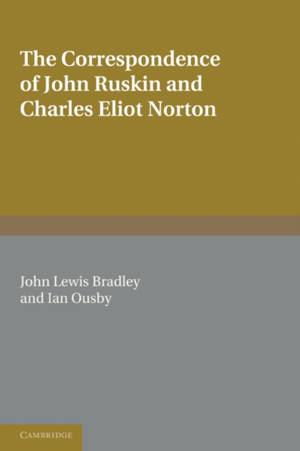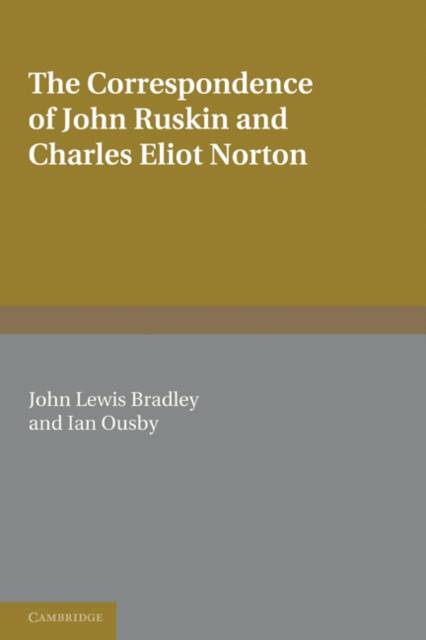
- Afhalen na 1 uur in een winkel met voorraad
- Gratis thuislevering in België vanaf € 30
- Ruim aanbod met 7 miljoen producten
- Afhalen na 1 uur in een winkel met voorraad
- Gratis thuislevering in België vanaf € 30
- Ruim aanbod met 7 miljoen producten
Zoeken
The Correspondence of John Ruskin and Charles Eliot Norton
Charles Eliot Norton, John Ruskin
Paperback | Engels
€ 96,95
+ 193 punten
Uitvoering
Omschrijving
John Ruskin first met Charles Eliot Norton in 1855. Norton was the American counterpart of a man of letters. With a common distaste for the industrial and scientific directions of modern civilisation, the two men became intimate correspondents and the letters they exchanged until shortly before Ruskin's death in 1900 reflect and express, often more vividly than his own public prose, the spiritual, amatory, artistic, and cultural preoccupations of Ruskin's life. The revelations were so candid that Norton, as one of Ruskin's literary executors, burned many of the letters, altered a number of others in his Letters of John Ruskin to Charles Eliot Norton of 1904, and sought to efface his side of the correspondence almost entirely. In this 1987 volume, Dr Ousby and Dr Bradley present a far more complete and accurate record of the exchanges, which comprise 333 from Ruskin to Norton and 63 in return.
Specificaties
Betrokkenen
- Auteur(s):
- Uitgeverij:
Inhoud
- Aantal bladzijden:
- 552
- Taal:
- Engels
Eigenschappen
- Productcode (EAN):
- 9780521187718
- Verschijningsdatum:
- 28/04/2011
- Uitvoering:
- Paperback
- Formaat:
- Trade paperback (VS)
- Afmetingen:
- 152 mm x 229 mm
- Gewicht:
- 798 g

Alleen bij Standaard Boekhandel
+ 193 punten op je klantenkaart van Standaard Boekhandel
Beoordelingen
We publiceren alleen reviews die voldoen aan de voorwaarden voor reviews. Bekijk onze voorwaarden voor reviews.







